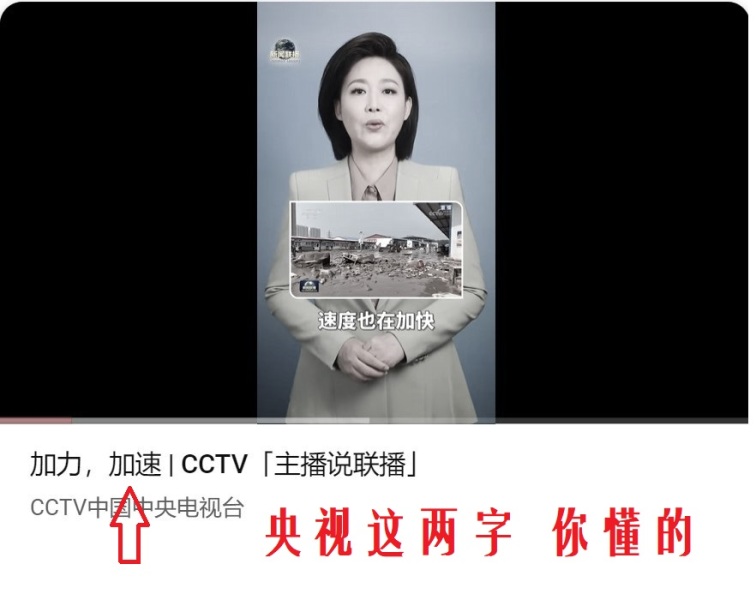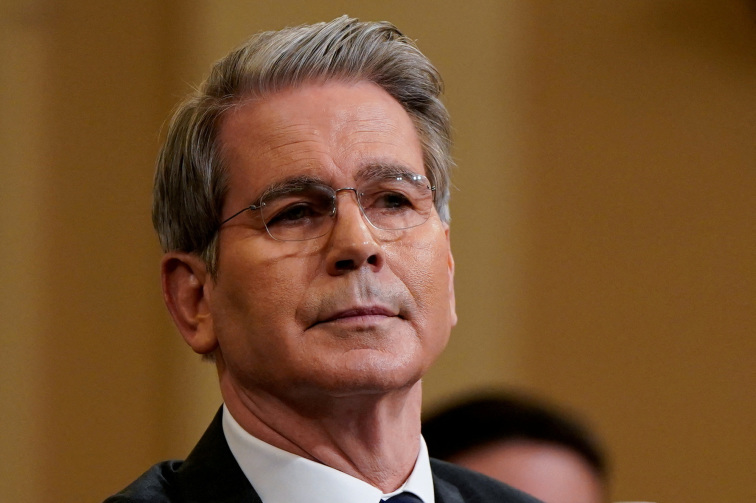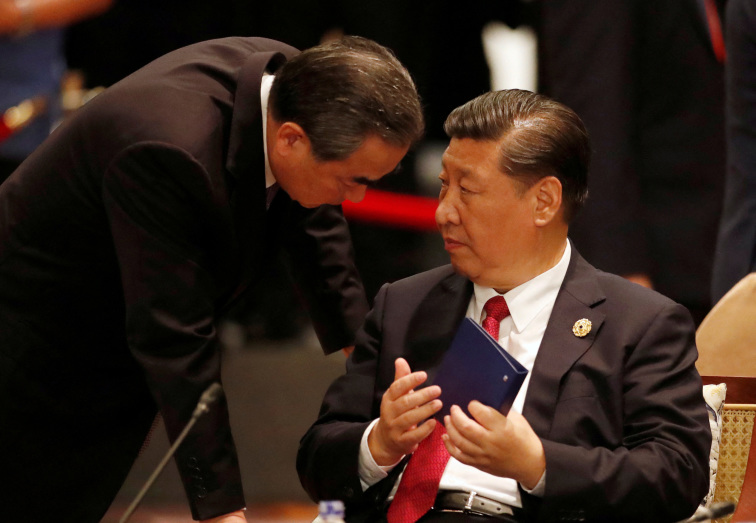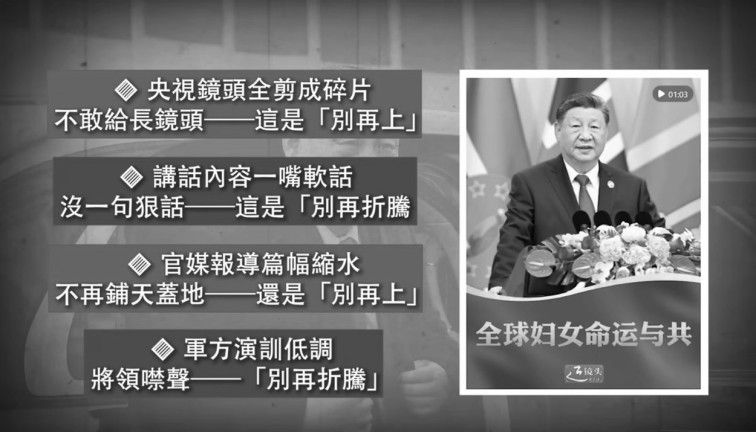On the eve of the CCP’s 20th Central Committee Fourth Plenary Session, a large convoy of various military vehicles was spotted on highways near Baoding, Hebei Province. (Video screenshot)
[People News] The Chinese Communist Party (CCP) has announced that the Fourth Plenary Session of the 20th Central Committee will be held in Beijing from October 20 to 23, to determine the country’s future political and economic direction.
According to political analysts, personnel reshuffling within the CCP’s top leadership will be a major focus of the session, with key changes likely to be announced during or shortly after the meeting.
Given reports of Xi Jinping’s health problems and his repeated failures in both personnel choices and policymaking over the years, outside observers are watching closely to see whether Xi’s faction will weaken during this plenary session, which also serves as an early barometer for the CCP’s next major political event—the 21st National Congress in 2027.
Beyond the political and personnel challenges, the upcoming session faces unprecedented economic turmoil.
Xi’s Regime Confronts Deepening Economic and Social Crises
China’s real estate collapse, youth unemployment, and population decline, compounded by a stagnating economy, are exposing the CCP’s corruption and brutality to both domestic and international audiences.
Social trust is disintegrating, public anger is nearing eruption, and the CCP now struggles to fabricate an image of stability and unity for what it calls a “victorious and harmonious” congress.
The regime’s response has been a nationwide campaign of arrests and repression. In recent days, dissidents, petitioners, rights defenders, minority activists, and Falun Gong practitioners have been detained, interrogated, confined to their homes, or forcibly disappeared.
Police now randomly stop people on streets, in public transport, train stations, and subways to check IDs—turning Beijing into a city under siege. The atmosphere of panic and fear of regime collapse has spread throughout the nation as the CCP braces for the meeting.
Crackdown on Religious Groups Before the Session
This wave of arrests differs from the past in that members of underground Christian churches have become prime targets.
Since October 10, at least 20 clergy members from Beijing’s well-known Zion Church, including its founder Pastor Jin Mingri, have been detained.
Recently, the CCP Politburo convened a study session themed “Promoting the Sinicization of Religion,” during which Xi Jinping emphasized the need to “guide religions to adapt to socialist society.”
In other words, atheism remains the official state ideology, and the CCP is reiterating ahead of the plenary session that all religious activity must submit to Party control.
Shortly afterward, the CCP issued new regulations banning the online transmission of religious content and prohibiting virtual worship services. It mandated that all religious activities be managed by the CCP, including the appointment of religious leaders and the vetting of sermons. Any group that refuses to comply will be specifically targeted for suppression.
In the weeks since, arrests of underground Christian church members have been reported nationwide, further shrinking the space for religious freedom.
International Media: CCP Fears Religion’s Moral Influence
Le Monde (France) reported that the CCP’s crackdown on underground churches reflects growing anxiety within the regime. As China’s economic slowdown deepens and social anxiety spreads, more citizens have begun seeking spiritual comfort.
Scholars note that in a rapidly modernizing and materialistic society, many Chinese feel spiritually empty. Official ideology emphasizes nationalism, labor, and material prosperity—but lacks transcendent ideals or faith. In this vacuum, religion offers moral and emotional support.
The CCP’s suppression of faith, therefore, betrays its fear of religion’s expanding influence.
According to official CCP data, there were already about 38 million Protestant Christians in mainland China in 2018—nearly double the number a decade earlier. Including underground congregations, the real number may exceed 80 million, a figure that terrifies a regime obsessed with ideological uniformity.
This echoes the CCP’s 1999 persecution of Falun Gong, which began when internal reports indicated that more than 80 million people practiced Falun Gong—outnumbering CCP members. The regime, fearing for its survival, launched a brutal campaign of suppression.
Now, before the Fourth Plenary Session, the CCP’s intensified persecution of thought, spirit, and faith reflects its deep fear of ideological collapse. The regime has expanded its campaign against Falun Gong practitioners to include other independent religious groups beyond its control.
Escalating Persecution of Falun Gong
According to a Minghui.org report on October 15, at least 12 new incidents of arrests and persecution of Falun Gong practitioners occurred across China in recent days.
The CCP is not afraid of popular uprisings—it holds the guns. What it truly fears is independent spiritual belief, which undermines its monopoly on thought.
The Party never listens to warnings and will not reform; its destruction of China is now unstoppable. It knows that the people it has persecuted will not forgive or forget—so it has chosen to continue down its dark path of repression.
Xi’s Regime Senses Collapse
At this Fourth Plenary Session, the CCP hopes to redefine its development path, rebuild its political legitimacy, and revive a crumbling “social contract.”
But these goals are already impossible.
Amid political, personnel, and economic crises, the CCP’s frantic crackdown on independent believers is not a show of strength—but a symptom of fear. The regime smells the scent of its own disintegration.
(First published by People News)
△











News magazine bootstrap themes!
I like this themes, fast loading and look profesional
Thank you Carlos!
You're welcome!
Please support me with give positive rating!
Yes Sure!